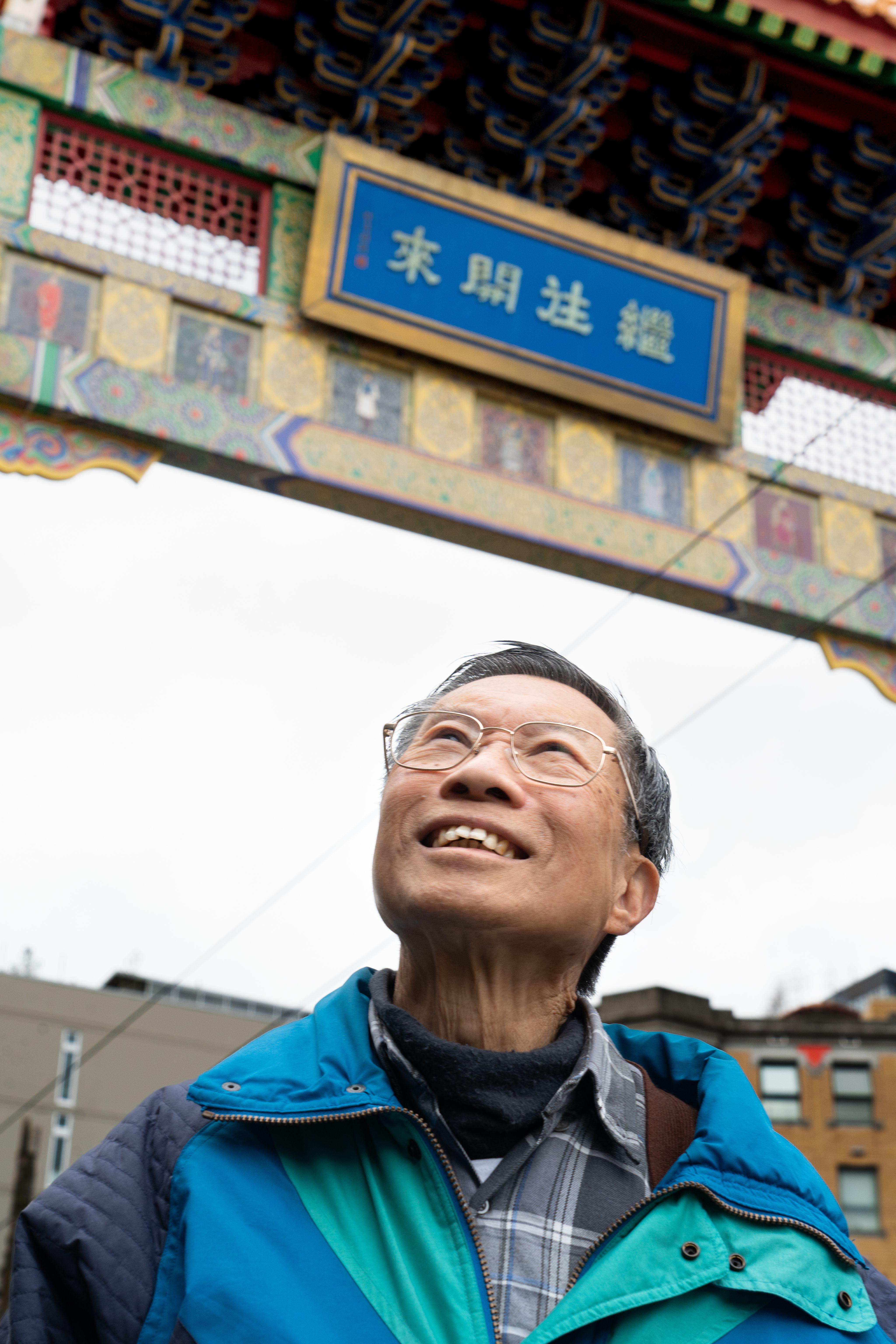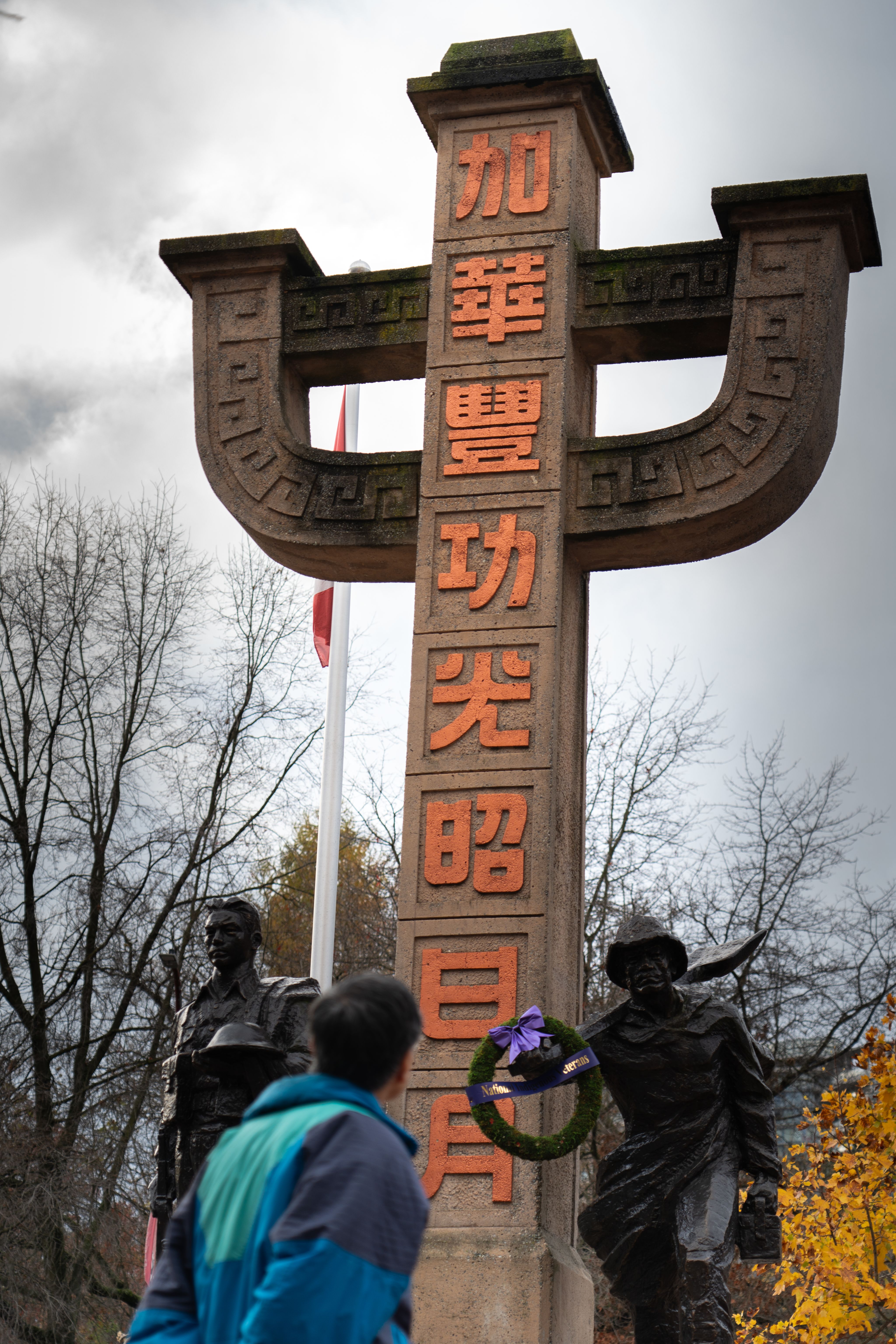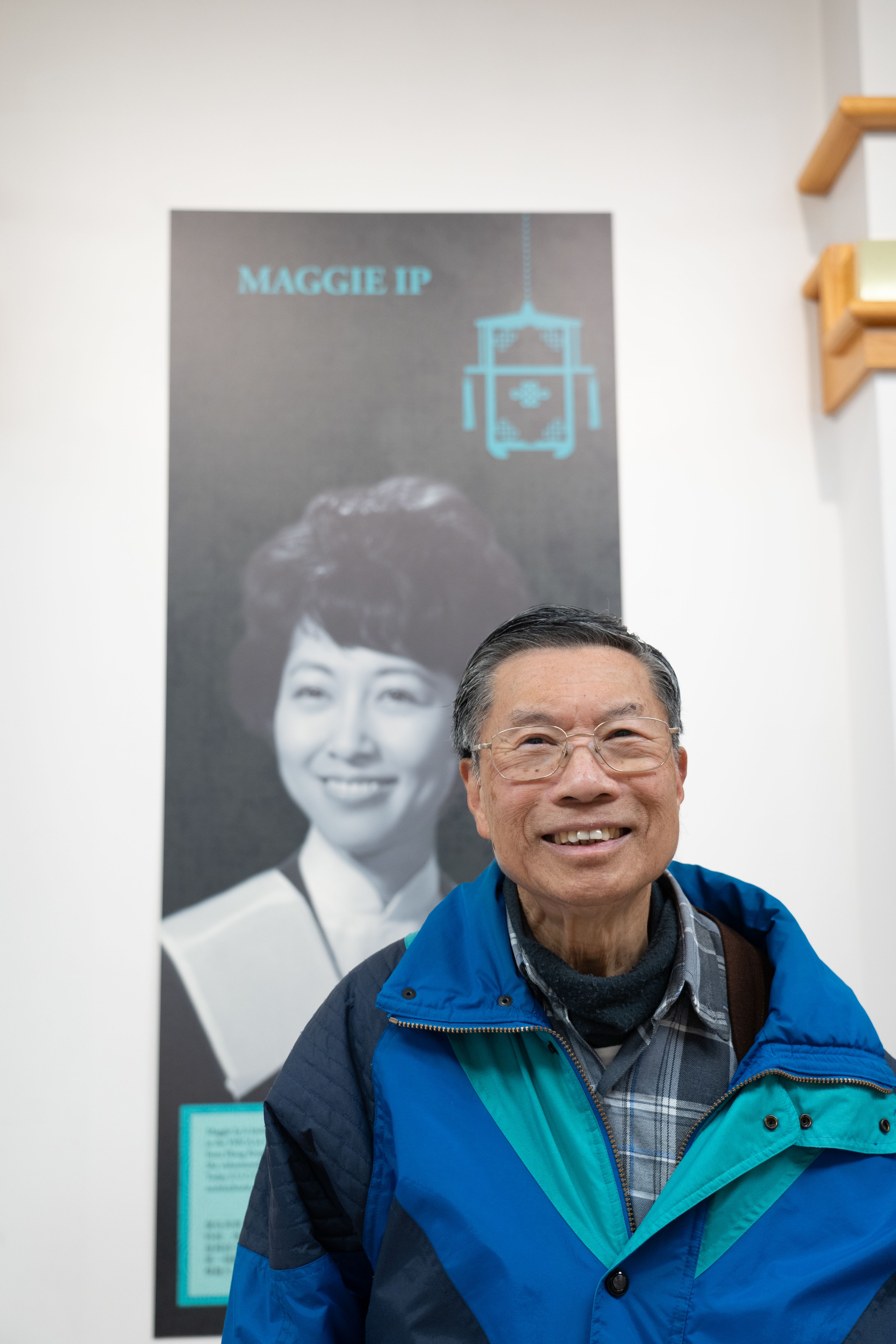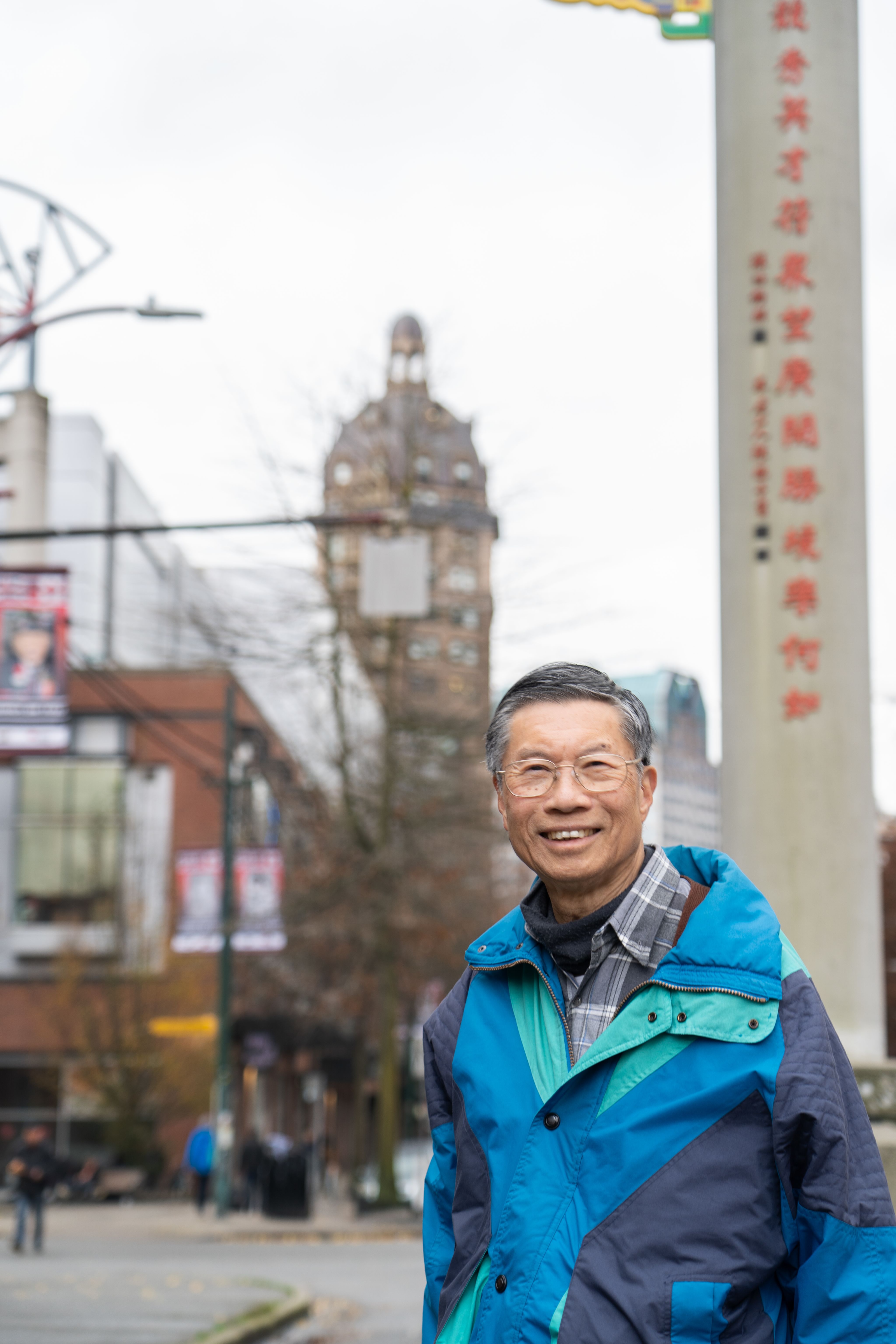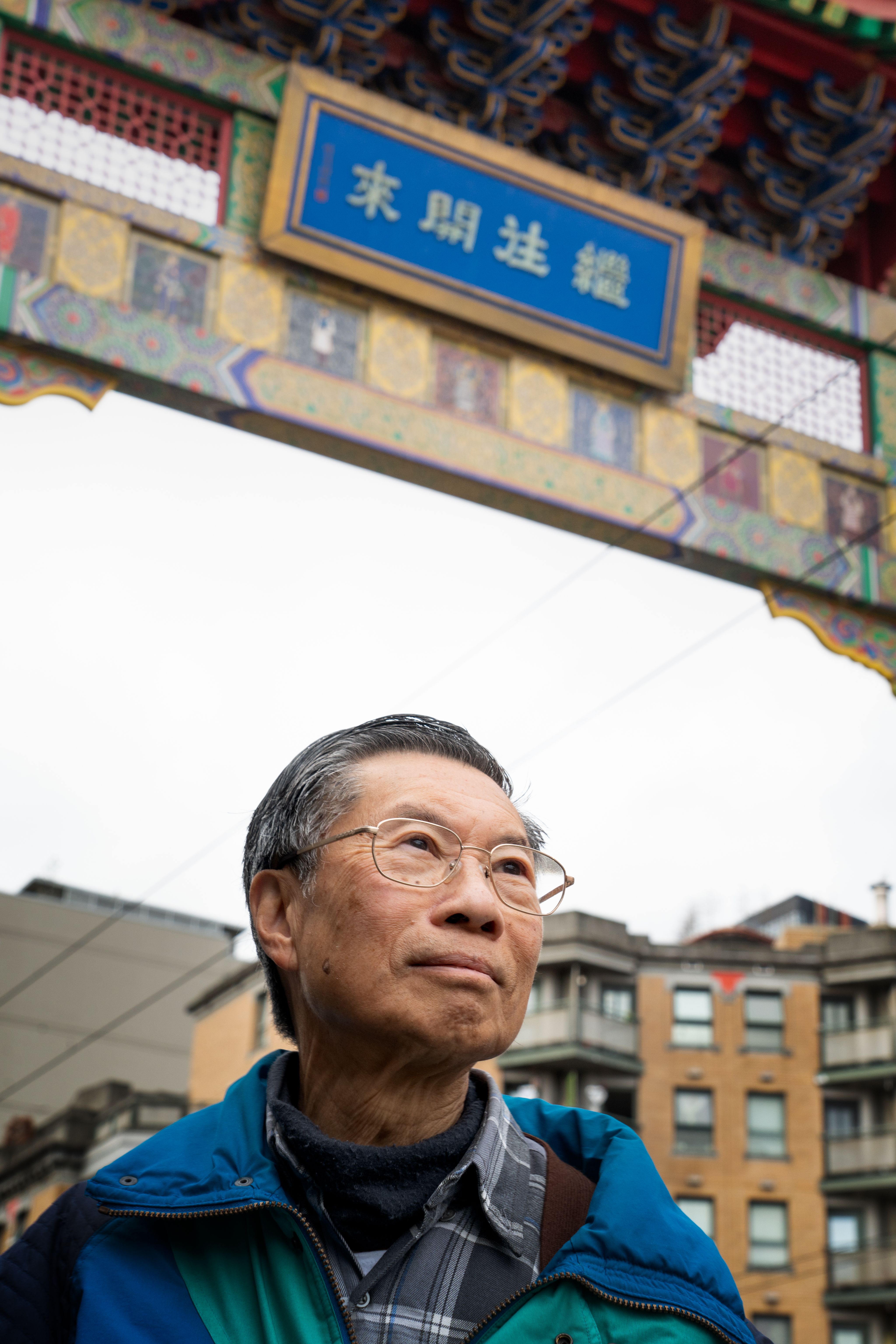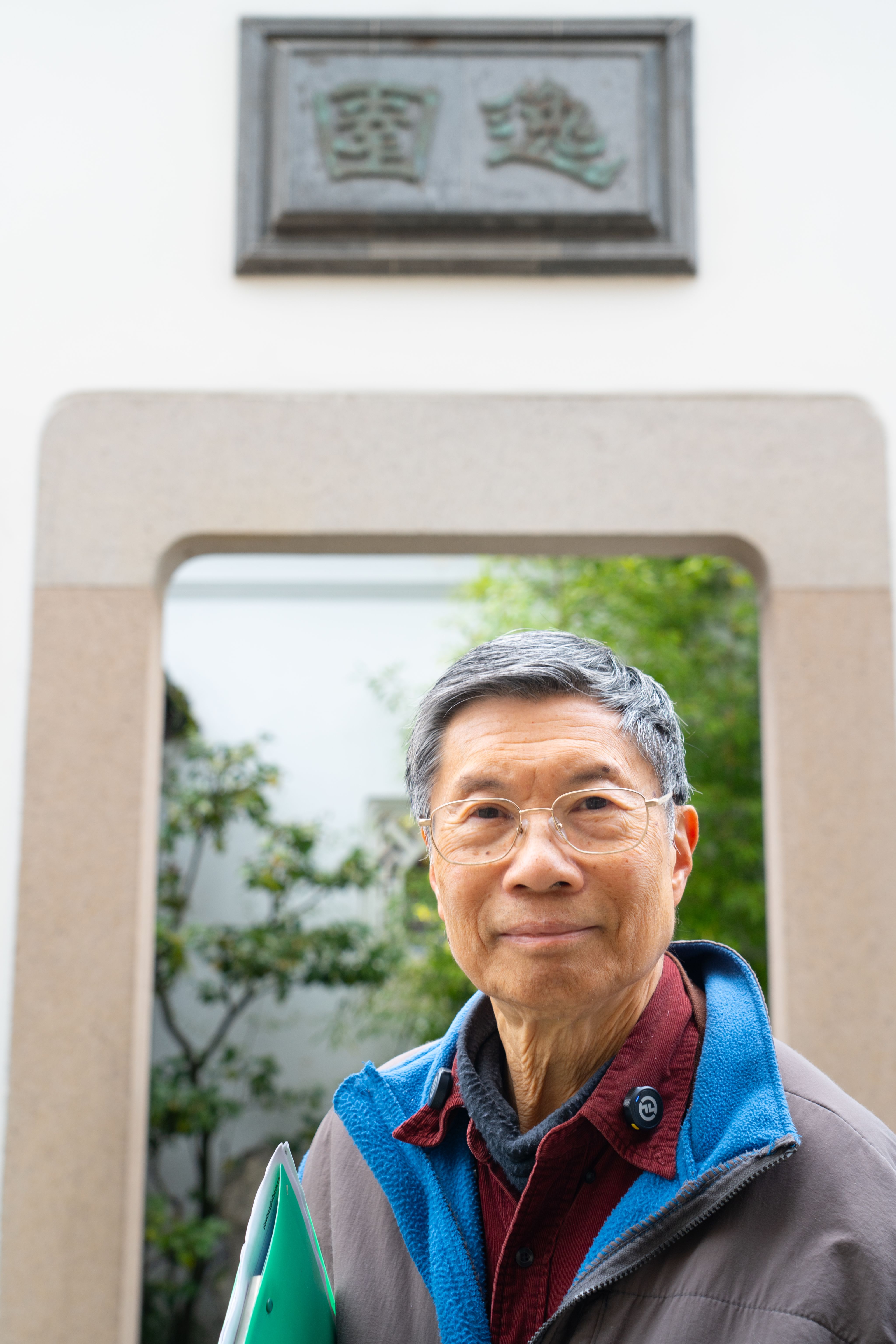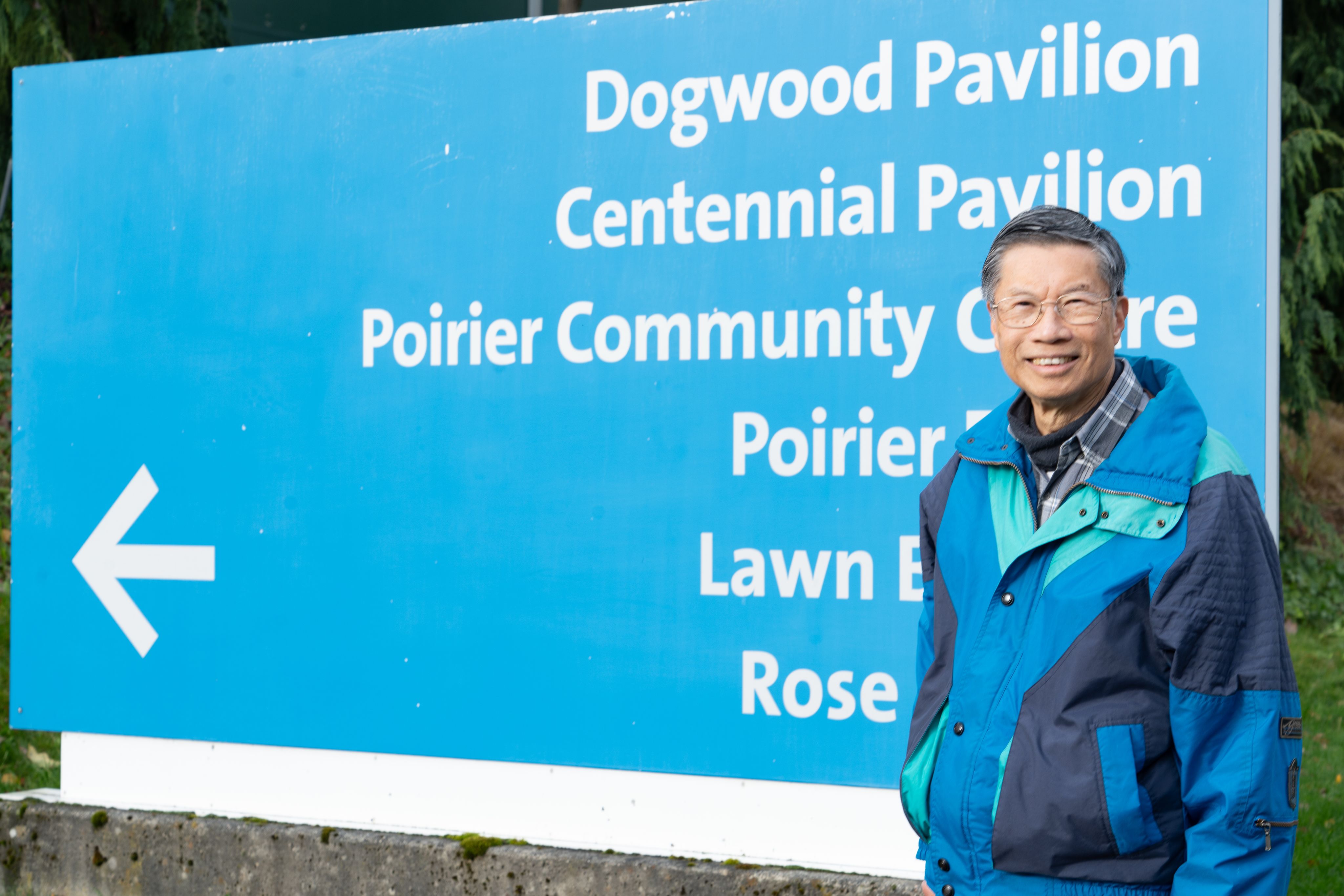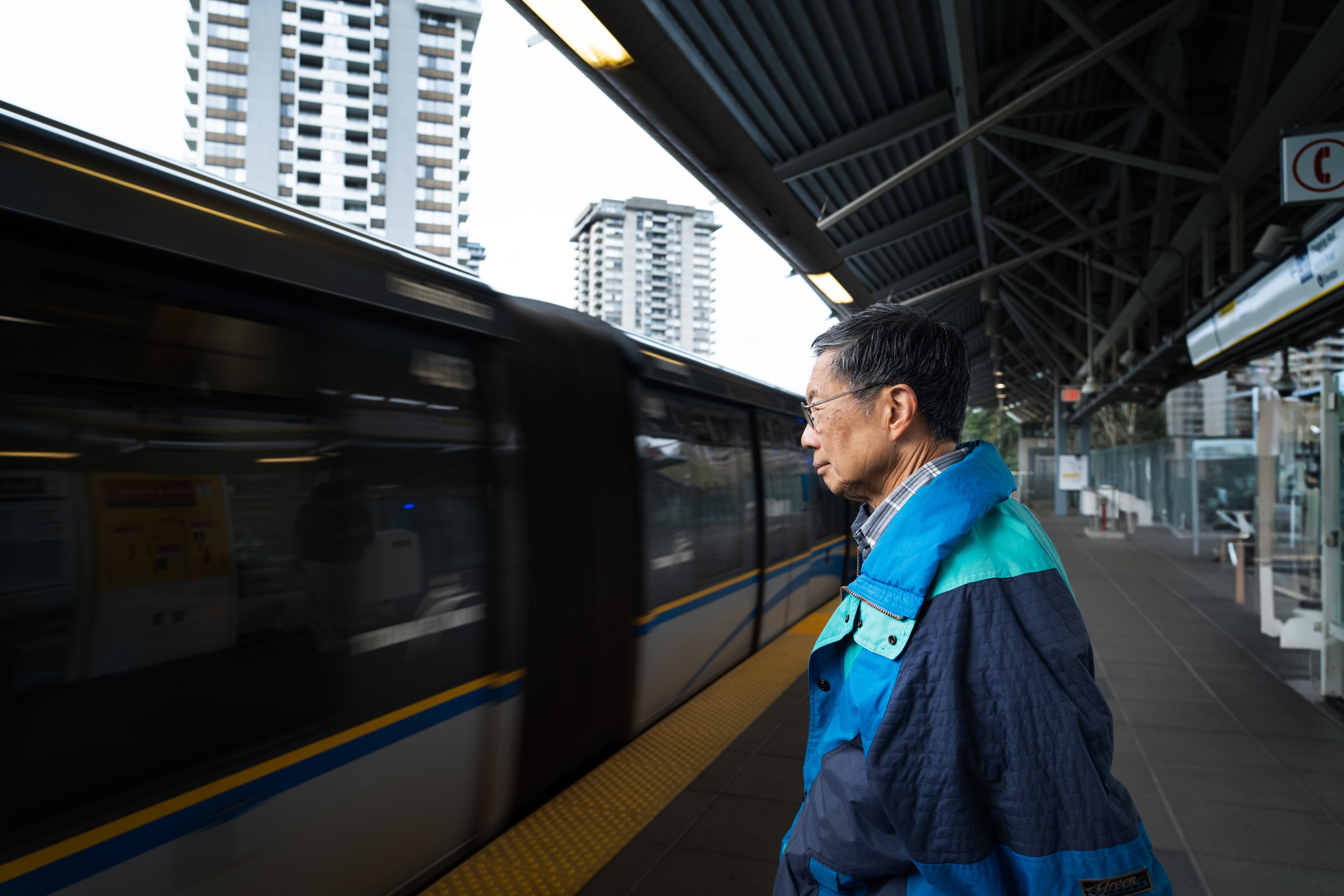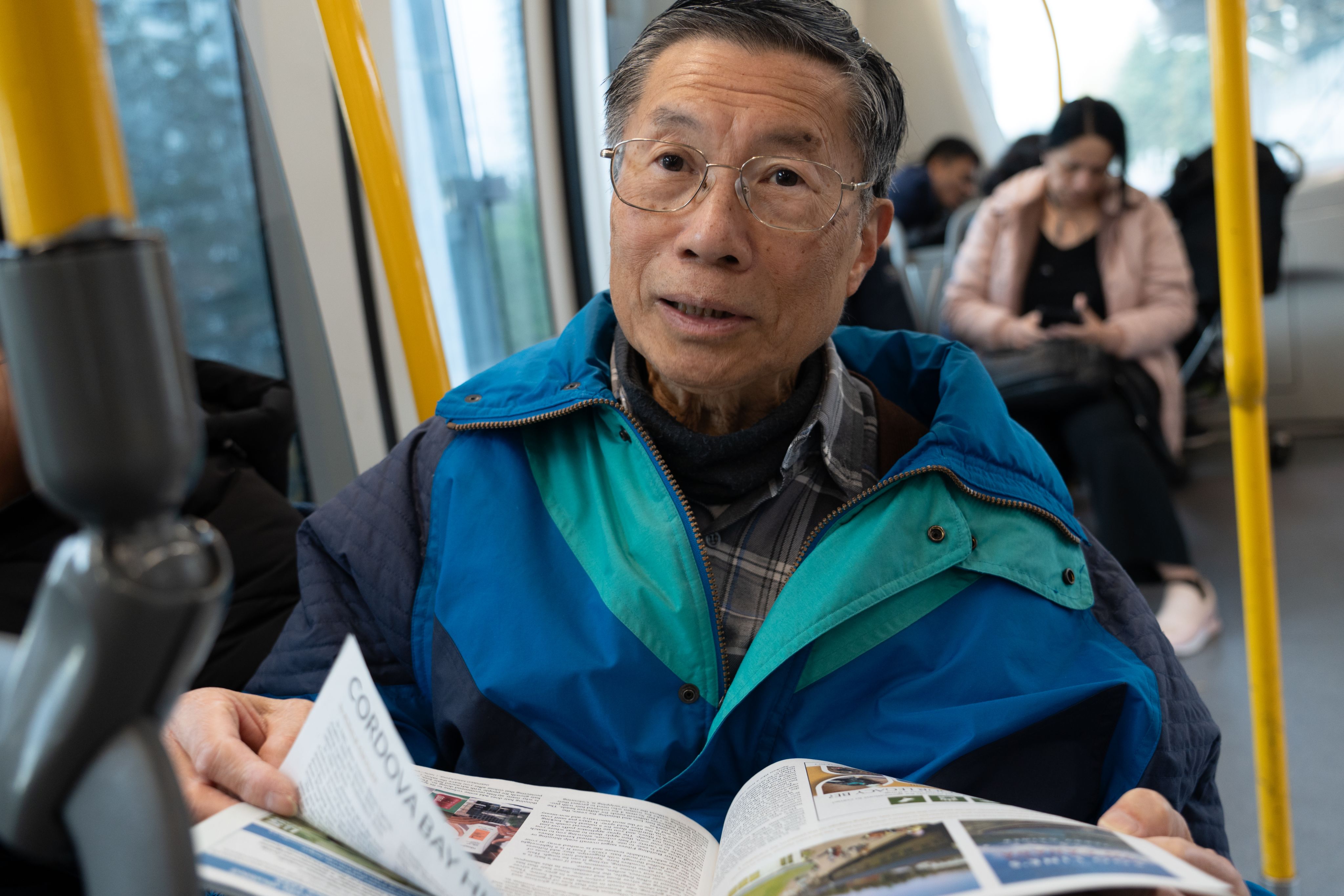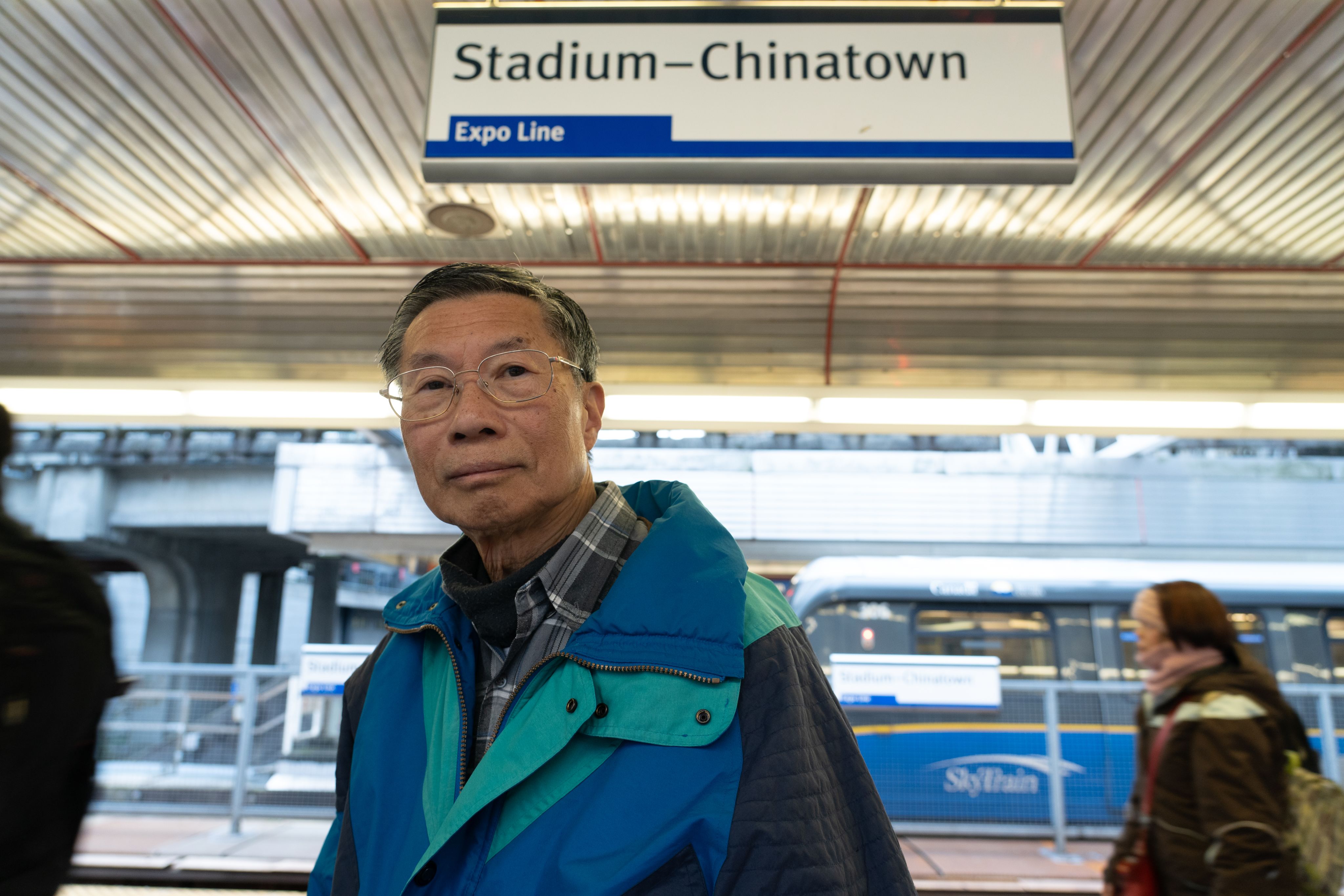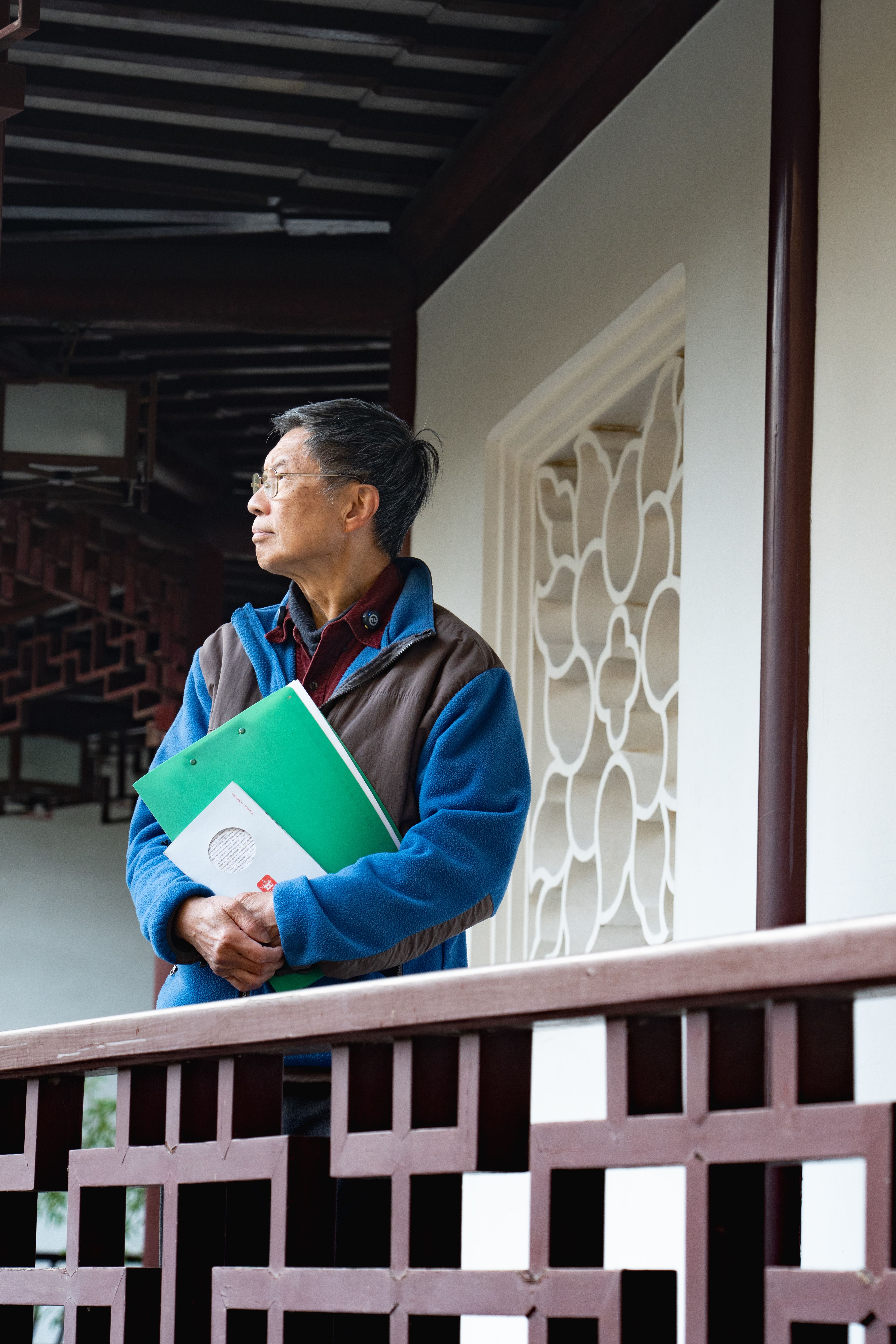Discover the Beauty of Volunteering
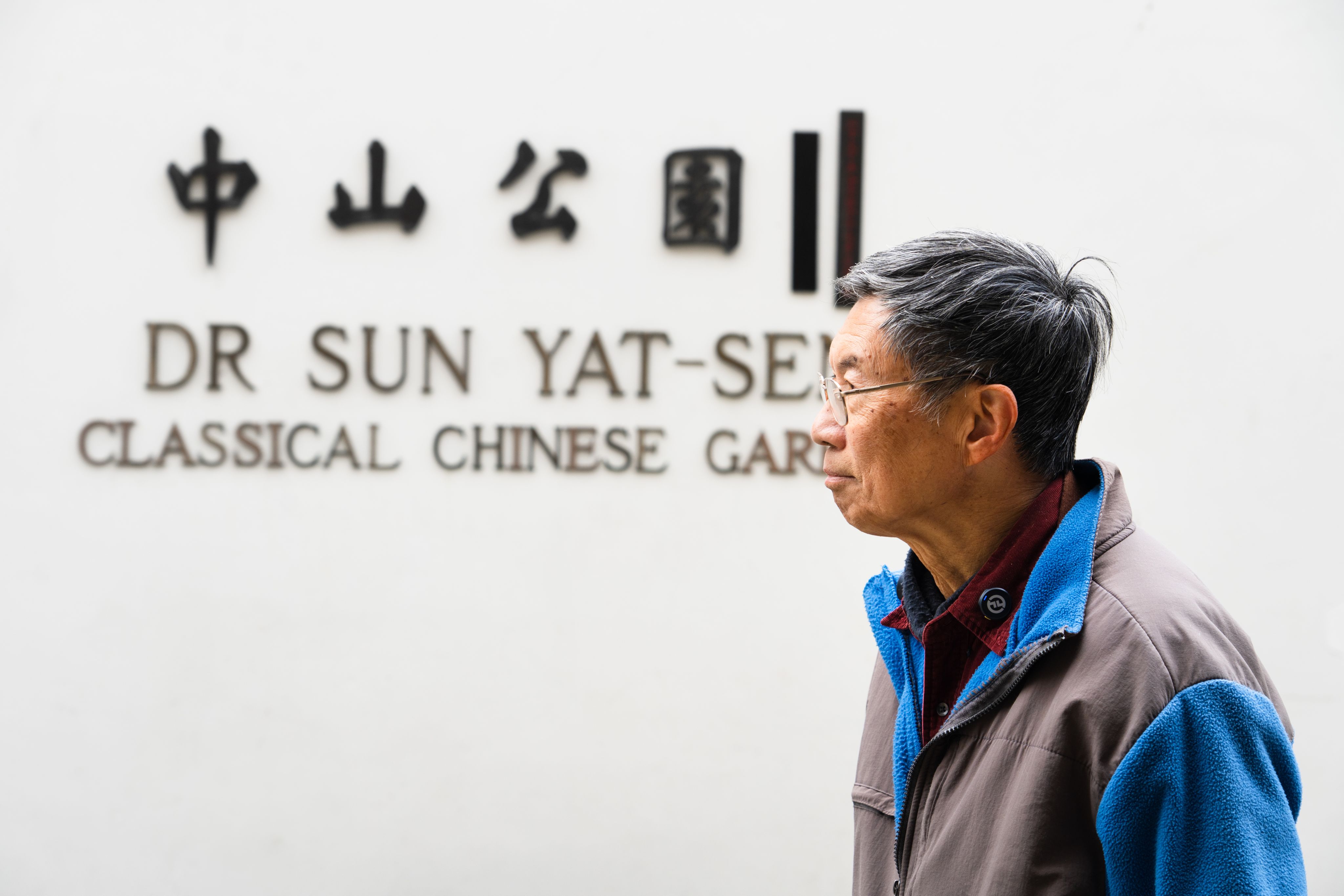
Amidst the massive exodus before Hong Kong's handover, David opened a new life chapter—— immigrating to Canada in his 50s.
Laying down his new life across the edge of Pacific, one brick at the time, David started taking up jobs and duties that only few people could handle. His first employment was in night-shifts, with his regular sleep pattern flipped upside down.
Despite the physical and mental exertion, David stood resolute in his pursuit of volunteering. From a translator to a curator , be it a school, a museum, or an event booth, David is always exploring new possibilities to give back to communities.
It was in Vancouver's Downtown Eastside that David has been volunteering. At Strathcona School in 1996, he provided translation service to students' parents during their opening evening. Soon he was involved in translating articles in Evergreen News at S.U.C.C.E.S.S., a long-standing community association stapled in Chinatown.
Perseverance and integrity are much valued by David. These are also the bright virtues in Chinese culture.
Perseverance and integrity are much valued by David. These are also the bright virtues in Chinese culture.
David at Chinese Cultural Centre, one of his many volunteering bases in Chinatown.
David at Chinese Cultural Centre, one of his many volunteering bases in Chinatown.
"As the sayings goes: the grass is always greener on the other side. Lots of people were moving abroad at the time. So I made the decision to come to Canada as many others, looking for a better life quality, better social welfare, better education environment for kids, and a downsize of pace to enjoy retiring days."
"On the other side, I understand immigration to live in a new country could be struggle. It may not be an immediate salvation I hope for, this transition in my life felt like another steep climb. But I kept pushing forward, determined to make it. That was the reason why I intended to start my new chapter with volunteering in various sectors"
28 Years And Counting
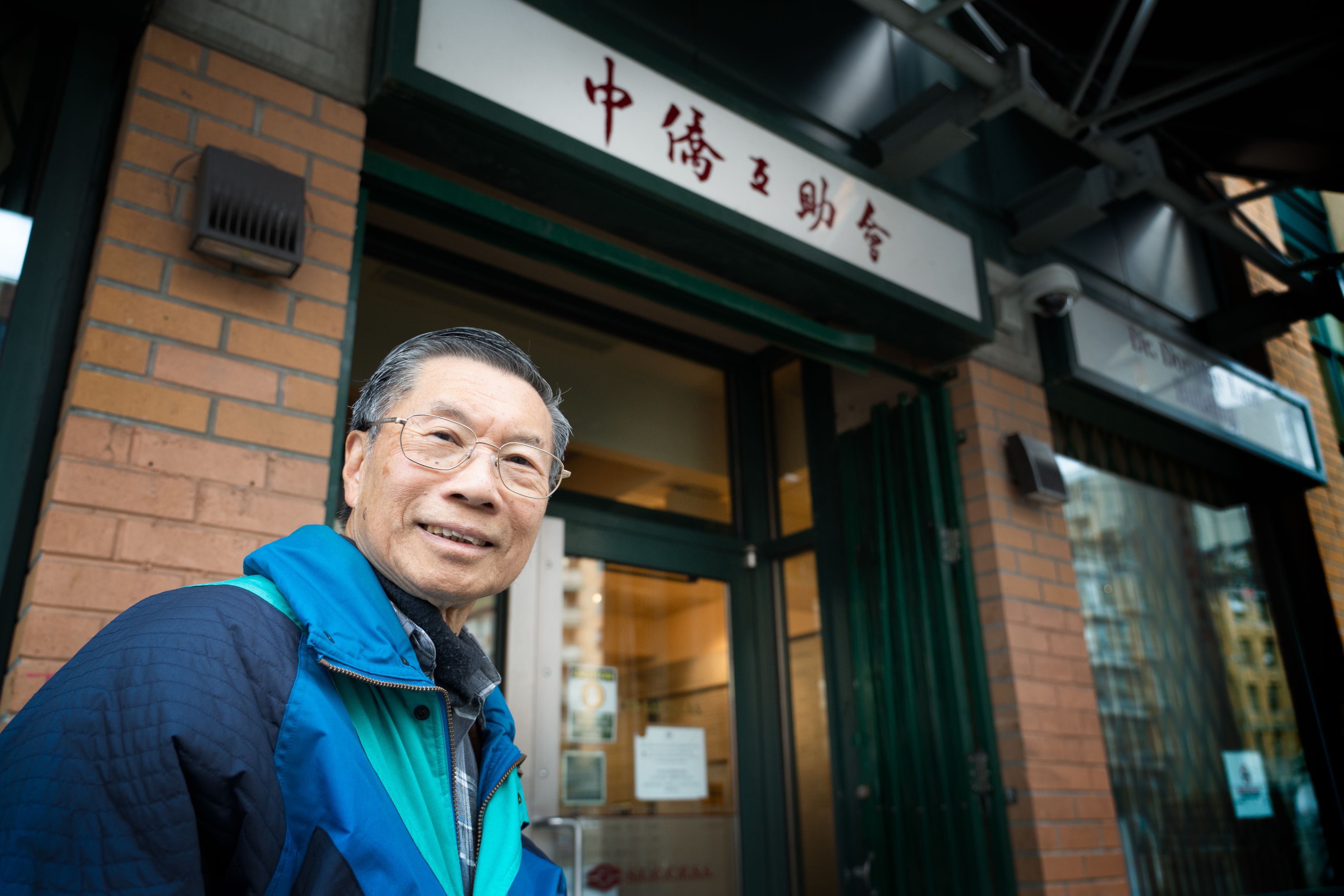
Volunteering takes time and effort, as it sacrifices the potential earnings from part-time hours. But it is not just money that counts.
Community services also open a gateway to all sorts of knowledge, skills, and informal know-hows. It helps new migrants adapt to the new environment. These benefits are essential to David's foundation in Vancouver.
"Shortly after settling down in Vancouver in 1996, I started to explore volunteering opportunities in various community organizations, aiming to know more about the community culture, learn new skills, get used to work ethic, help for a cause to make an impact, light up lives and live actively, and above all, it could be my stepping stone for job hunting."
Of course, the days of toiling overnight are long gone. After nearly three decades of perseverance, David has integrated well into the Canadian mainstream society. There are times where he doubted about staying here and asked whether he should return. But he realizes life moves on. He has to look ahead, never looking back.
David juggles fluent English and Cantonese. He speaks English in clipped sentences, thinking deeply about the wise choice of words; but he speaks Cantonese like a raging river. Our conversation still recalls the place names in Hong Kong, such as where to have beef brisket noodles in Sheung Wan.
Although David is already retired, he never gives up volunteering. For 28 years and counting, he continues to serve the community. In 2019, he became a volunteer at the Dr. Sun Yat-sen Classical Chinese Garden, where he talks to curious visitors about the stories, principles, and philosophies behind the architectural design.
"As I started planning to retire, I hope to find some volunteer opportunity that could allow me to build up a daily routine schedule, so coming to Dr Sun Yat-sen Classical Chinese Garden is my first choice. It is my culture, which I embrace. And I like sharing with visitors who want to know more about some popular and fundamental Chinese culture, traditions and beliefs."
Dr. Sun Yat-sen, the famous revolutionary that the Garden is named after, helmed the campaign that overturned the Qing Dynasty in 1911. This marked not just the end of the dynasty, but also demolition of the imperial rule, a political system had stretched its length of two thousand years.
Dr. Sun Yat-sen Classical Chinese Garden was established shortly after the Chinatown was recognized for its historic value. Like Dr. Sun Yat-sen who pioneered a new era for China, the Garden was also the first-ever Suzhou Ming-styled garden outside of Asia.
"The Garden gives me a good opportunity to honour Dr. Sun Yat-sen, as being respected by the local Chinese as the Father of Modern China."
David lives in Burnaby, but he often travels to Chinatown. This is where he volunteers, finds value, acceptance, and does the things he loves.
David lives in Burnaby, but he often travels to Chinatown. This is where he volunteers, finds value, acceptance, and does the things he loves.
As a new migrant from Hong Kong, David decided to start a new chapter afresh without looking back. Never compare with the past, only focus on the path ahead.
As a new migrant from Hong Kong, David decided to start a new chapter afresh without looking back. Never compare with the past, only focus on the path ahead.
Yat-yuen, the Chinese characters atop read. Yat is a reference to the Dr. Sun Yat-sen.
Yat-yuen, the Chinese characters atop read. Yat is a reference to the Dr. Sun Yat-sen.
Going to Chinatown
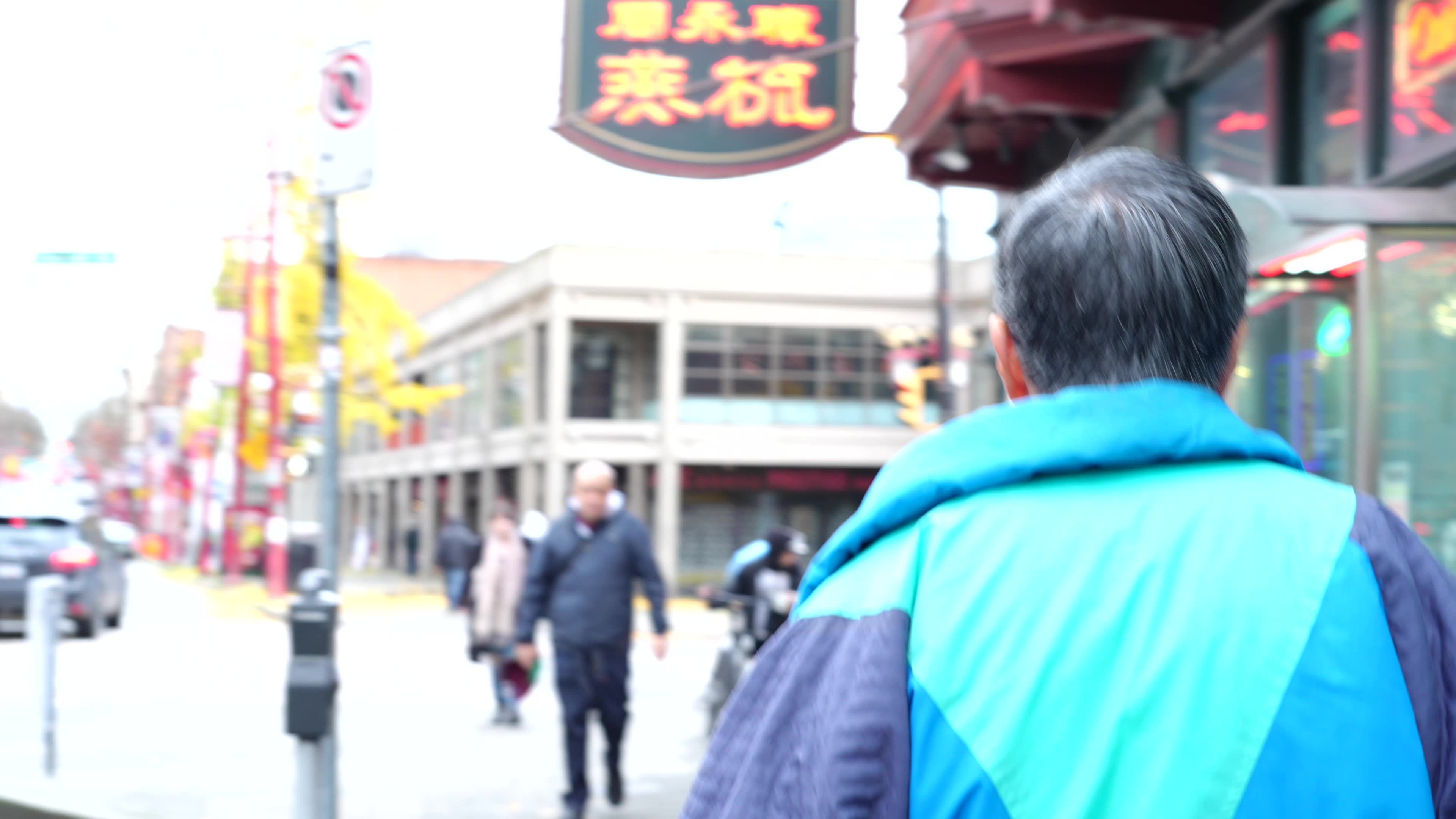
Imagine taking an hour and fifteen minutes to Vancouver's Downtown Eastside.
Every weekend, David hops on a bus from Dogwood Pavilion to Braid Station. And the 25-minute-ride is soon succeeded by another 50-minute-ride on Skytrain. Bear in mind that this only covers the distance to travel there. If we also wrap in the time to come back, David will spend nearly three hours commuting between home and the Dr. Sun Yat-sen Classical Chinese Garden alone.
Rest assured, however, that time is well spent on train. Finding a seat is not difficult, and David will entertain himself with something to read. It can be a variety of things, from daily newspapers to community publications.
David has a rather youthful complexion. His hair is very well groomed, perhaps knowing that he will be on the camera. Several hoary wisps run through the black mass, and it makes him all the more fashionable and smart.
Volunteering freezes one's age, and the happiness from helping others stays longer than buying luxury. David enjoys talking to people, understanding their worldviews, and sharing the values of culture.
"I embrace my culture. And I find comparing Chinese legends with other ethnic culture the most meaningful and rewarding part of my job. I once introduced the Chinese Zodiac and the 12 animals signs to an Iranian family. And they told me they also observe the similar 12 animal signs on their new year Nowruz, with the only exceptions that they replace tiger with leopard, dragon with whale.
Dogwood Pavilion, where David hops on the bus and starts his journey to Chinatown
Dogwood Pavilion, where David hops on the bus and starts his journey to Chinatown
Braid Station, and another 40-minute-ride awaits.
Braid Station, and another 40-minute-ride awaits.
David often learns new words by reading the materials on train. He keeps on expanding his vocabulary.
David often learns new words by reading the materials on train. He keeps on expanding his vocabulary.
Stadium Chinatown is also close to TNT Supermarket, where David will shop for groceries after he finishes at the Garden.
Stadium Chinatown is also close to TNT Supermarket, where David will shop for groceries after he finishes at the Garden.
"Classical Chinese gardens are not like Western gardens — they need interpretation, a spiritual interpretation of nature."
The Dragon Is in the Details
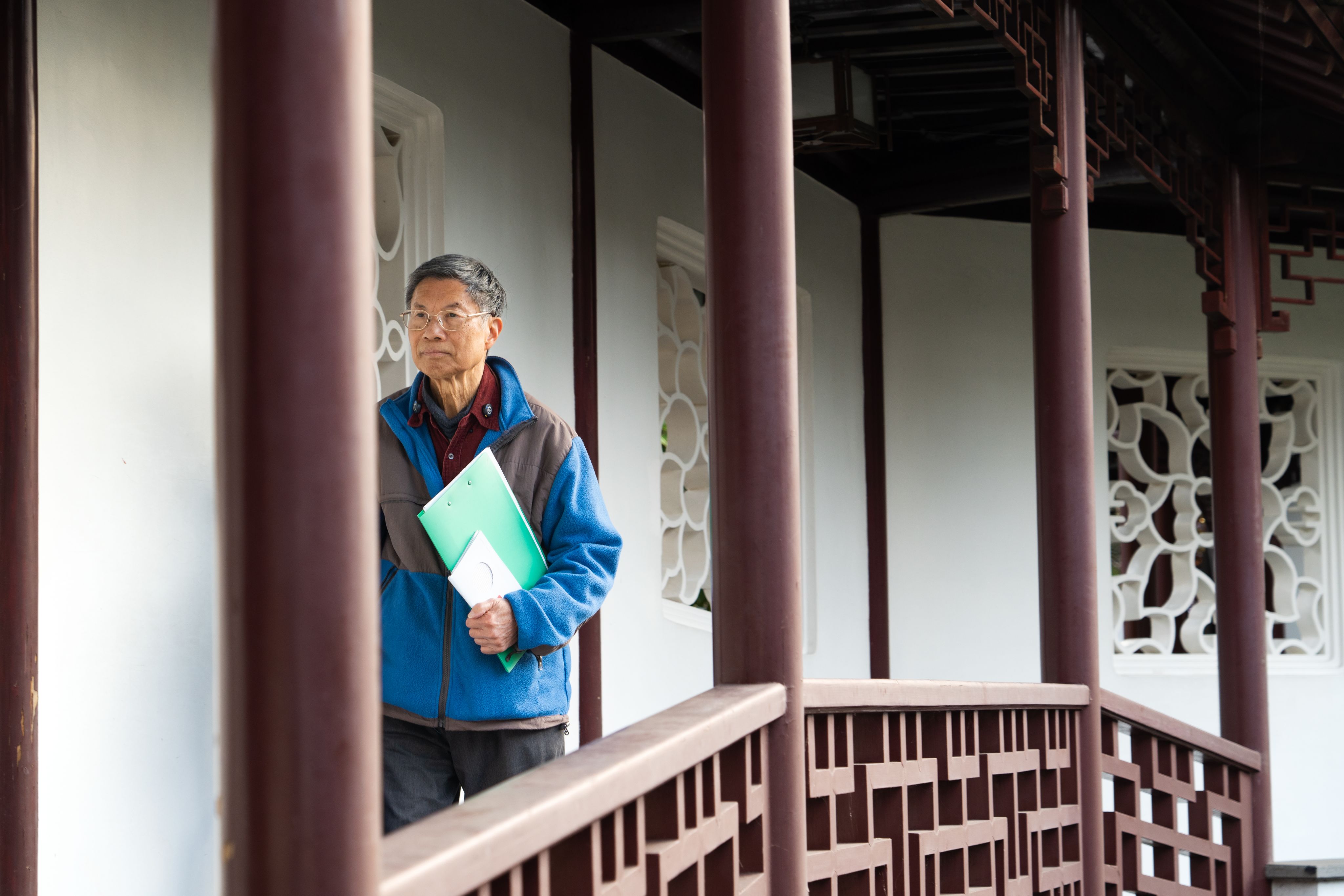
Dr. Sun Yat-sen Classical Chinese Garden imitates the aesthetics and traditions dated back to the Ming-dynasty (CE 1368–1644) , with classical philosophy, art, and old legends embodied within the architecture. Young scholars had a higher socioeconomic status at the time, and a classical garden would make an ideal place of study, meditation, work and retreat.
The elaborate craftsmanship leads to boundless ways of discovering and interpreting. The stone carvings on the doorway refer to classical Chinese legends, and the landscape is thoughtfully designed to manifest a harmonious balance of nature, one of the major Taoist teachings.
The pond is lined with oddly-shaped boulders that were brought from the lake bottom of Taihu. Their lines, crests, and holes are the results of natural erosion by water over millenniums. As you marvel at the nature's artworks, experience ever-changing views as you shift your perspectives.
Having a circular frame within a squared doorway suggests an equilibrium between formed materiality and formless nothingness. And the meandering waterway evokes the idea that the Garden itself is never ending.
But the most meaningful aspect of his volunteering comes from the conversation he has with visitors. To him, the Garden is a place to showcase the beautiful sophistication of the Chinese architecture and exchange cultures with others.
The zigzagging pattern of the railing symbolizes Chinese dragon, an auspicious mythological creature in Chinese culture
The zigzagging pattern of the railing symbolizes Chinese dragon, an auspicious mythological creature in Chinese culture
"Hearing visitors' positive feedback of my presentation, receiving a recognition note with complimentary remarks afterwards are my greatest rewards. There are lots for me to learn, for example, the tea culture ceremony, the penjing philosophy and different ways to live with nature."
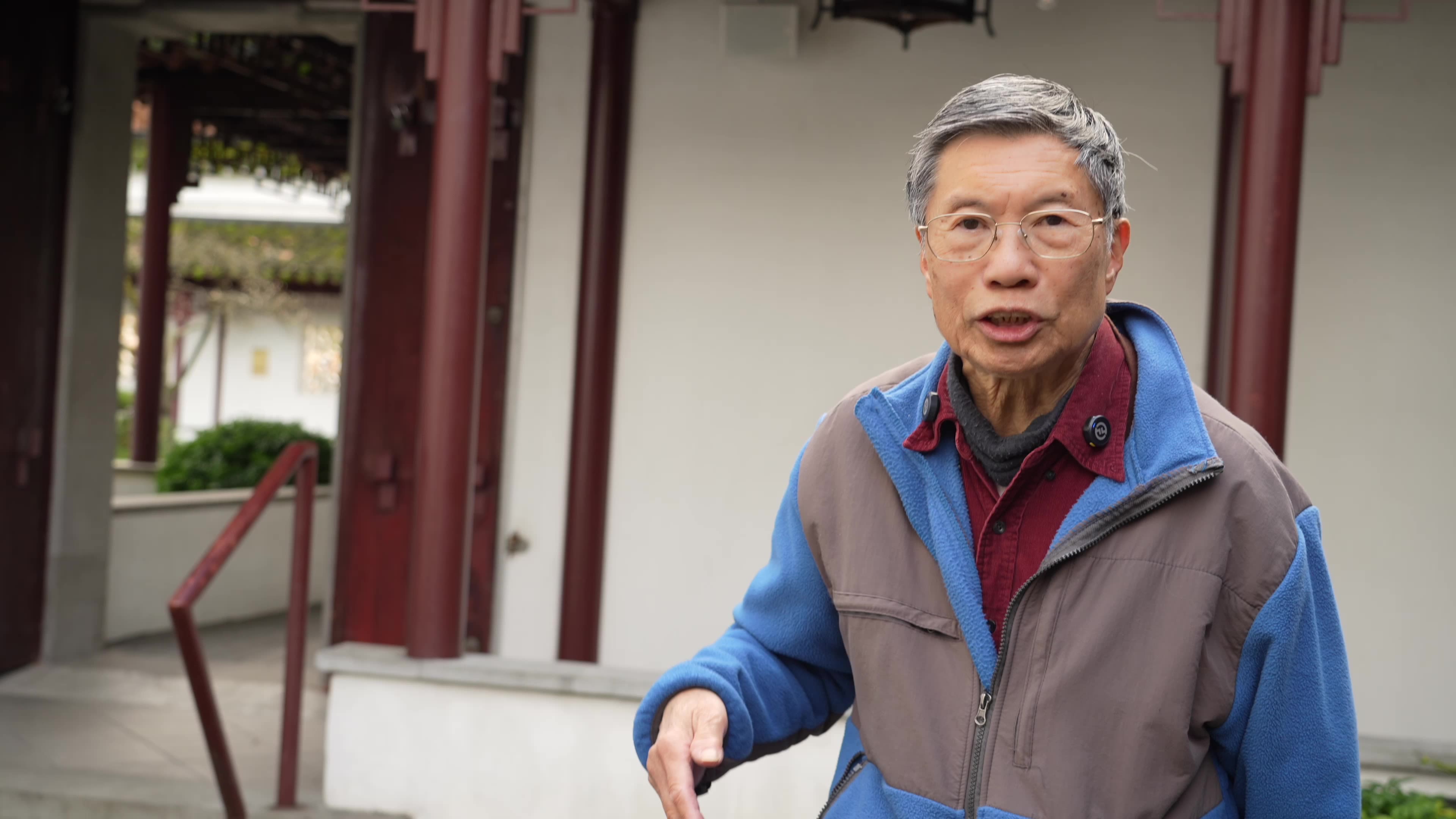
Brighten Ahead
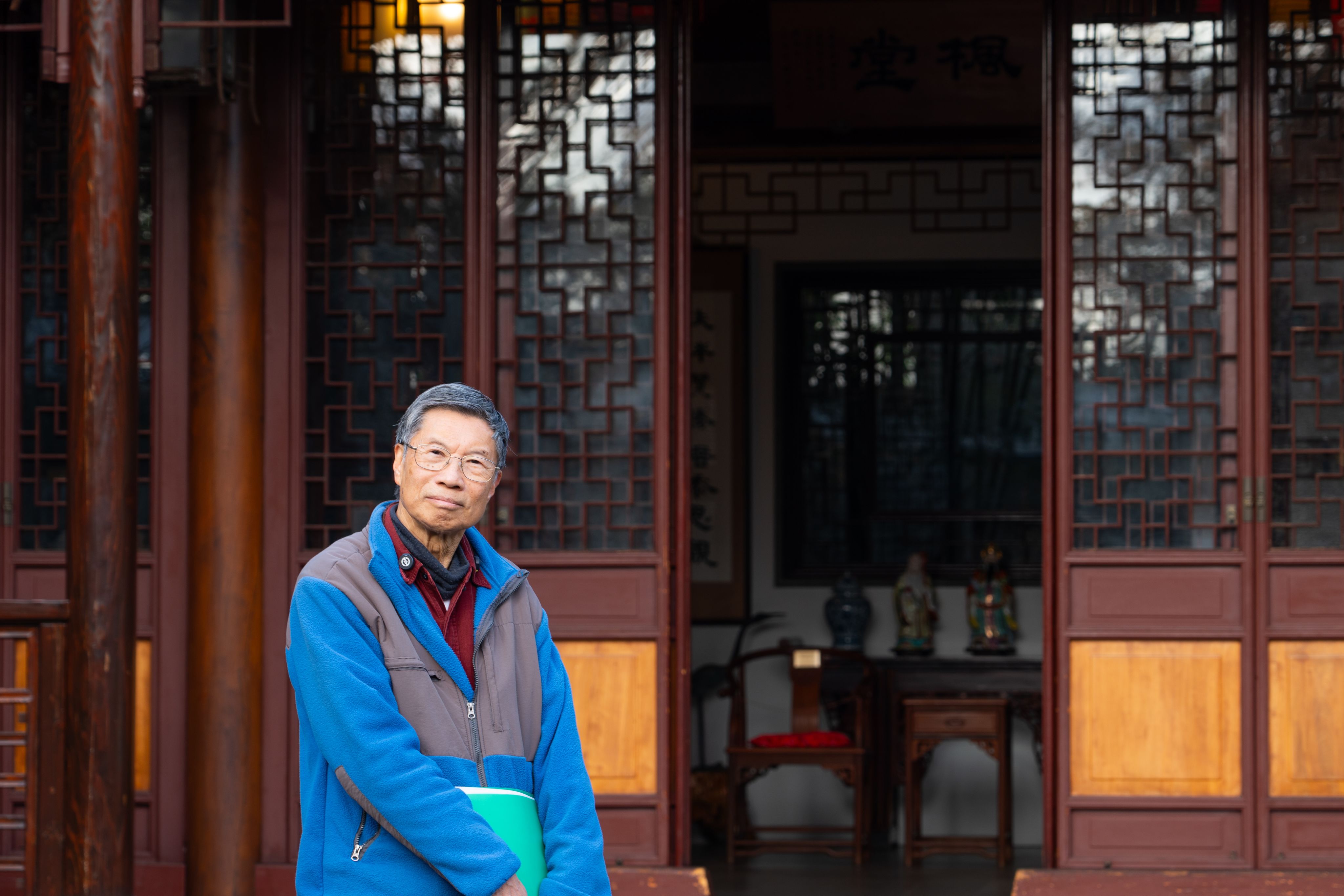
The Garden remains as quiet and picturesque as before, with willow branches kissing into water and petals drifting with waterfowls.
But the Garden actually has a rocky beginning: in 1968, the patch of land that the Garden was standing was marked to build "Chinatown/Gastown" Freeway Connector. Chinatown residents stood up to fight the development, knowing that much of the community would be wiped out and the City was prioritizing development over people.
Finally, the battle was won. The freeway plan was replaced with the proposals to improve, preserve, and revitalize the area. The Garden was among the initiatives to preserve Chinatown's shinning legacy.
Over the years, the Garden has become more lively with cultural activities, family workshops, arts exhibitions, and live performances. The Garden is reimagining its new role, bringing vitality to this neighbourhood.
Within the context of Vancouver’s history of urban development, the stories of Dr. Sun Yat-Sen Classical Chinese Garden represent evolution with continuity.
"I envision the community to become more inclusive with open arms — Diverse ethnic residents and visitors come to stay, to enjoy all the facilities the community can offer, to see the economic development — while remaining as an age-inclusive community, not displacing the vulnerable populations who had contributed so many ways and still call Chinatown their home."
David Ma
